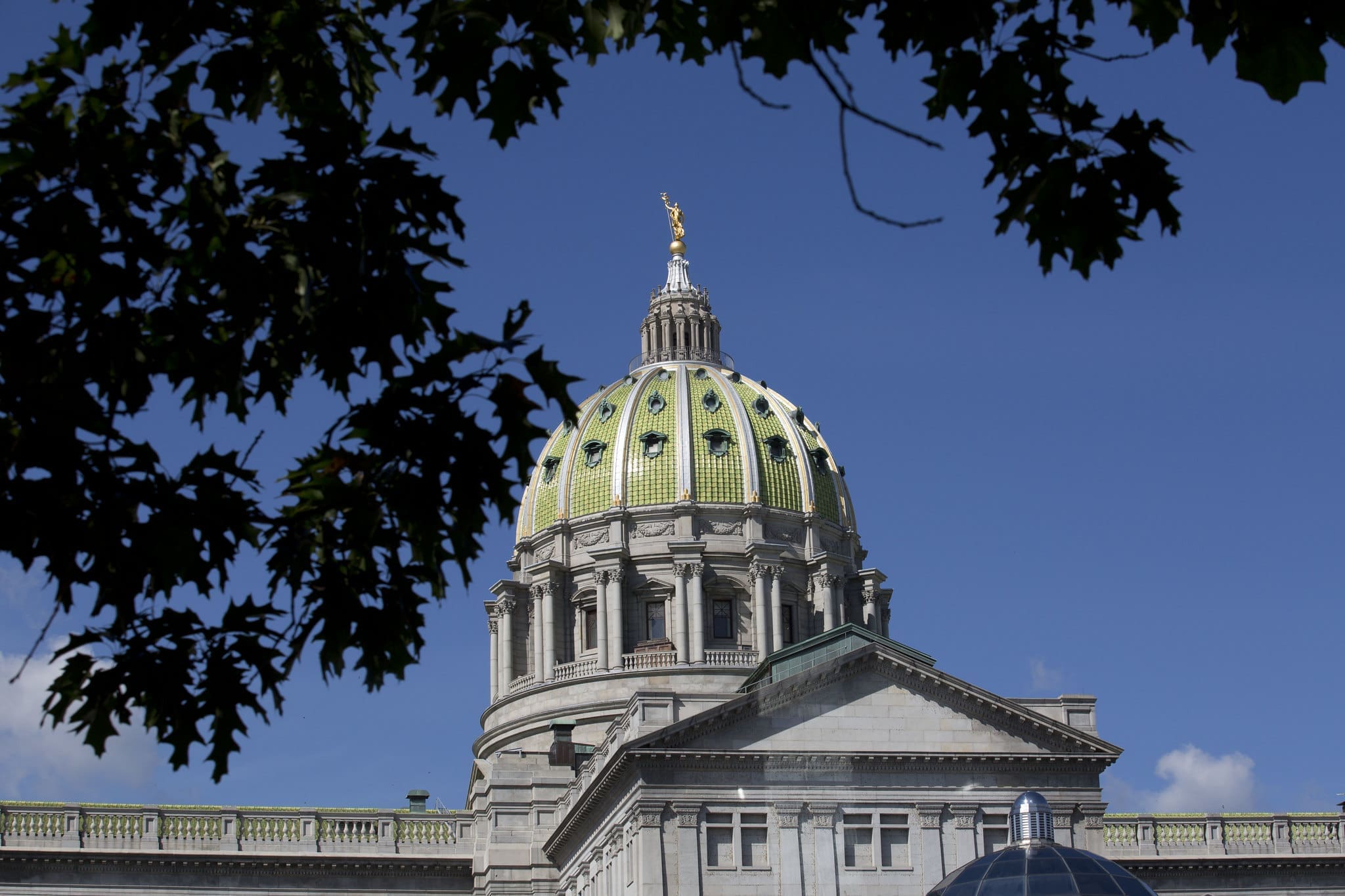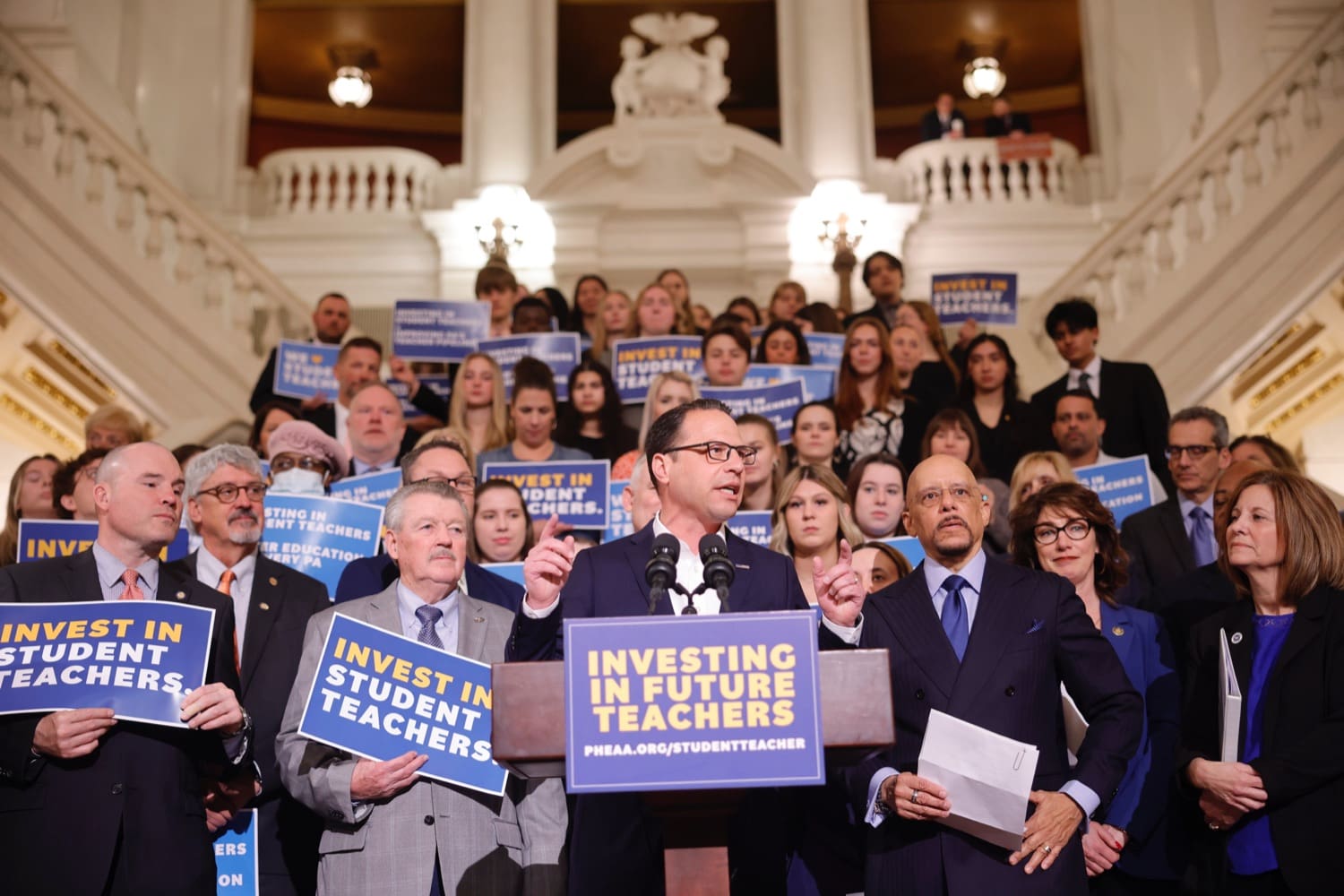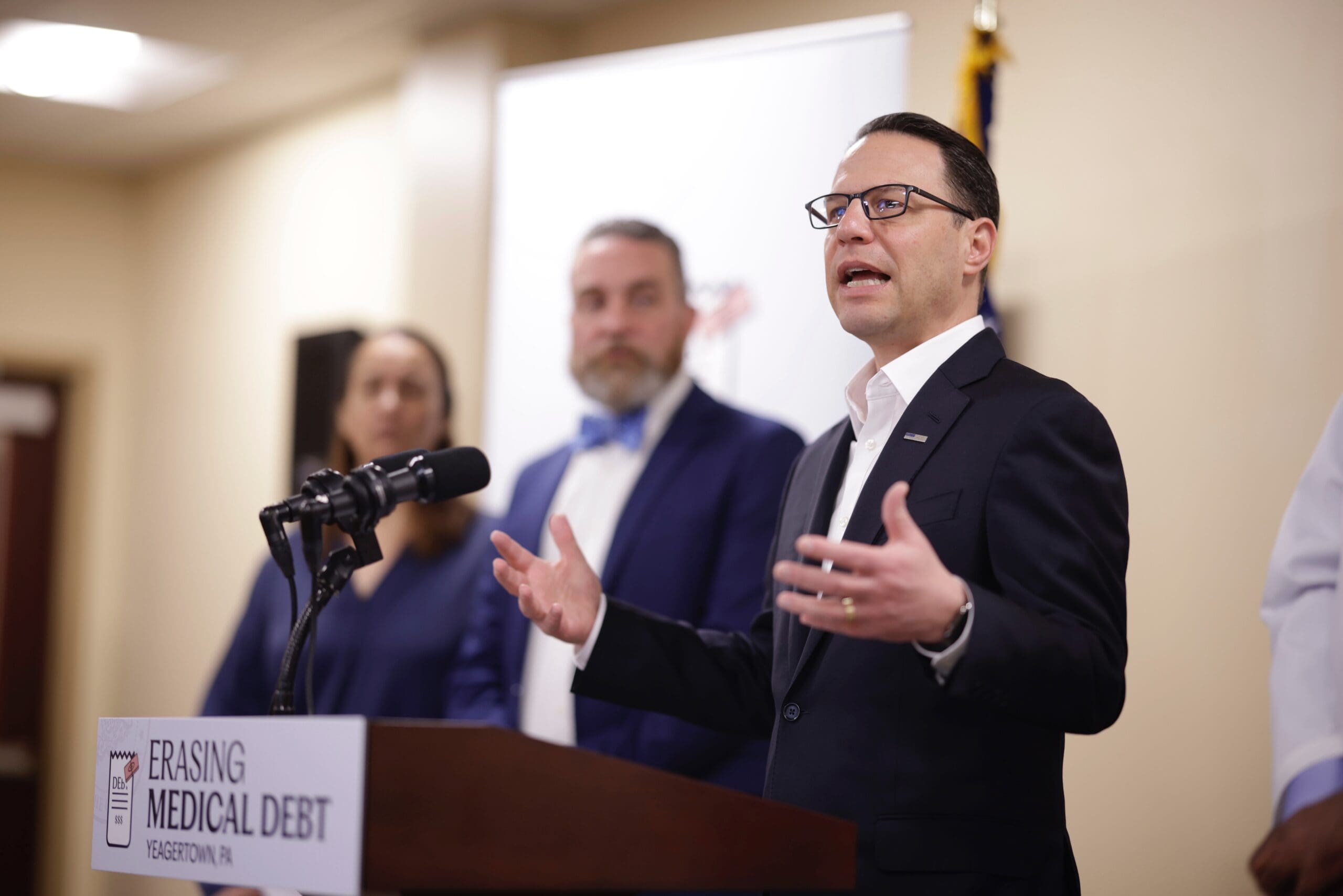Democratic lawmakers in Pennsylvania are determined to pass paid family and medical leave
Democratic Gov. Josh Shapiro announced paid parental leave for commonwealth employees in February, and lawmakers want to provide it for all Pennsylvanians.

When Sandra Carroll imagines what her life might have been like had she and her husband been able to access paid family leave 30 years ago, the Chester County resident envisions being able to afford the medical care she desperately needed after a traumatic pregnancy and birth.
Both college graduates who landed well-paying jobs after graduation, Carroll, who’s now 57, and her husband began to face what seemed like a never-ending nightmare when she experienced numerous health issues during her first pregnancy and then contracted a major infection at the hospital where she gave birth. That left her unable to work, and her husband did have to take unpaid time off from his job to care for his wife and newborn son. After he took that time off, he lost his job — which left him and his wife without health insurance.
“I needed money. I was sick. I needed treatment,” Carroll said. “The income was taken away. We had to move. We had to declare bankruptcy. We couldn’t get credit for a lot of years because of that.”
If either she or her husband had been able to receive paid time off, Carroll said, their lives would have been dramatically different.
“It would have been a short time off of work for the employer; we would have gotten something to live on; we wouldn’t have lost our health insurance,” Carroll said. “Those things contribute to a huge downward spiral.”
Now, three decades later, Carroll is fighting to ensure no family has to face the nightmares she and her husband have lived through.
After Shapiro expands paid parental leave, a push for broader benefits in Pennsylvania
Following Gov. Josh Shapiro’s announcement in February that his administration had expanded paid parental leave for commonwealth employees, Democratic legislators and advocates such as Carroll said all workers in Pennsylvania needed access to similar benefits and urged state lawmakers to create a paid family and medical leave program for full- and part-time workers.
As of Feb. 15, employees of the commonwealth can take eight weeks of paid parental leave for the birth, adoption or foster care placement of a child. Previously, employees could take up to six weeks.
Currently, paid family and medical leave is not available for all workers. The federal Family and Medical Leave Act of 1993 allows eligible workers to take unpaid time off for caregiving or health reasons. Those workers must meet a number of requirements to be eligible, including working for a company that employs at least 50 people. Democratic state Rep. Dan Miller hopes to change that with legislation that would create a universal paid family and medical leave program in Pennsylvania,
“We can’t just be happy that somebody has paid leave while millions don’t,” Miller told the Pennsylvania Independent.
“So, it’s a great step,” Miller continued, referring to Shapiro’s announcement. “I applaud it, but our goal is to not stop until the overwhelming majority of not just full-time but part-time workers have access to some type of paid leave.”
Democrats push for House and Senate votes on paid leave this session
Miller’s legislation, House Bill 181, would create a paid family and medical leave program for full- and part-time workers in Pennsylvania. The bill, known as the Family Care Act, passed out of committee last year and is now before the full House. It would allow the vast majority of workers to apply for paid time off through a statewide paid leave fund. Anyone employed in the state would contribute tax dollars to the fund that would cover individuals who need time off to care for a newborn, sick spouse, or ill parent, or to attend to their own health challenges, among other issues.
Employers would not directly contribute financially to the paid leave fund but would assist by paying someone else to fill in for the individual taking paid leave, Miller said.
Democratic state Sen. Maria Collett and Republican Sen. Devlin Robinson, the chair of the Senate Labor and Industry Committee, are the lead sponsors of the Senate’s companion legislation. Collett told the Pennsylvania Independent the companion bill is expected to be introduced in March and will be Senate Bill 580.
“What we’re trying to do here is say to working people across the commonwealth, Hey, we understand that when it comes to the medical needs and support of yourself and your family, that the state has a responsibility,” Collett said. “We’ve got to do something here to make sure that employees have the opportunity to take the time that they need without the risk of losing their jobs.”
The state House has yet to schedule a vote on the legislation, and the Senate bill still has to be introduced. Still, Miller and Collett are optimistic it could be voted on this session.
The House’s leadership is backing paid leave. Nicole Reigelman, a spokesperson for Pennsylvania House Speaker Joanna McClinton, highlighted how paid leave benefits the state as a whole.
“Paid family leave helps businesses save money by reducing staff turnover and compete to attract skilled workers,” Reigelman wrote in a March 5 email to the Pennsylvania Independent. “Paid family leave would also make Pennsylvania an even more attractive place to live and raise a family.”
Carroll noted that while people across the political spectrum support paid leave, Republican lawmakers historically don’t vote for it. For years, Democrats introduced paid family leave legislation, but it never made it out of committee under Republican control. Democrats took control of the state House last year, while Republicans still have the majority in the Senate.
“I know I’m preaching to the choir for the Democrats,” Carroll said. “I really want the Republicans to be able to see how relevant it is for them too and how meaningful it is for everybody.”
It will, Carroll said, do what she wishes could have happened 30 years ago for her family: provide life-changing help.
“It will pay for itself many times over,” she said. “When you avoid this level of disruption to a family, you are putting back into the economy instead of taking from it. This is a Band-Aid to stop the downward spiral of financial devastation.”




